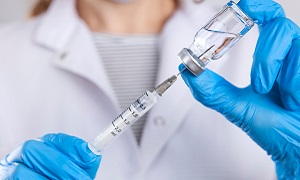Botox
Botox is a drug that can weaken or paralyze the muscle. It has both cosmetic and medical uses. With just a few small doses, it is able to reduce wrinkles on the skin. It is also effective in treating a few other medical conditions. It is a protein made from Botulinum tox, which is produced by the bacterium Clostridium botulinum. Although it is a toxin, when used correctly by doctors, in small doses, it can prove to be quite beneficial.
Purpose
Botox injections are able to block certain chemical signals from the nerves. This mostly includes signals which cause contraction of the muscles. These injections are commonly used to temporarily relax the facial muscles that cause wrinkles in the forehead as well as around the eyes. Botox injections are used to treat conditions that affect bodily functions as well. For example:
Cervical dystonia- This is a painful condition in which your neck muscles contract involuntarily and this can cause your head to twist or turn into an uncomfortable position.
Lazy eye- Lazy eye is mostly caused by an imbalance in the muscles that are responsible for positioning the eye.
Hyperhidrosis- This condition causes a person to sweat excessively, and this continues to occur even when the temperature isn’t hot.
Chronic migraine- If you are experiencing migraines more than 15 days in a month, Botox injections might help you reduce the headache frequently.
Muscle contractures- There are some neurological conditions, such as cerebral palsy, which can cause the limbs to pull in toward the center. These contracted muscles in some cases can be relaxed with Botox injections.
Eye twitching- Botox injections can also help relieve the contracture or twitching of the muscles around your eye.
Bladder dysfunction- Botox can also help to reduce urinary incontinence which is caused by an overactive bladder.
Preparation
A doctor’s care and guidance are important if you are planning to use botox. It is also important that the injections are placed precisely so that side effects can be avoided. It can be quite dangerous if it is administered incorrectly. You can ask for a referral from your primary care doctor or look for another doctor with specializations in your condition and has experience in administering Botox treatments as well.
A skilled and properly certified doctor will be able to give you proper advice on the procedure and can also help you determine if it suits your needs and health.
You need to inform your doctor if you’ve had any type of Botox injection in the past four months. Also inform your doctor if you take muscle relaxants, allergy medications or sleeping aids. If you take blood thinners, your doctor may advise you to stop taking them a few days before the injection is administered, in order to reduce your risk of bleeding or bruising.
During the procedure, most people don’t feel any discomfort. However, you might want your skin to be numbed beforehand. This is especially important if your soles or palms are being treated for excessive sweating. There are various methods for numbing the area, out of which your doctor will be choosing one.
During the procedure
Your doctor will dilute Botulinum toxin in saline, after which he/she will inject it directly into your neuromuscular tissue in your skin or muscles.
The toxic can tale 24–72 hours to take effect. In rare cases, sometimes it can take as long as five days for the full effects to show. Depending on your treatment, they can last 3-12 months.
It is not advisable to use Botox during pregnancy, breastfeeding or if you have ever had an allergic reaction to the drug or its ingredients.
After the procedure
Risks
Side effects of botox injections are generally uncommon. However, in some cases, it can cause a few unwanted side effects, such as:
- dry eye, following cosmetic uses
- numbness
- an upset stomach
- mild pain, bruising or swelling around the injection site
- temporary eyelid drooping
- a headache
- a worsening of neuromuscular disorders
- spatial disorientation or double vision after treatment for strabismus
- temporary weakness or paralysis in the nearby muscles
- urinary problems after treatment for urinary incontinence
- cardiovascular events, such as arrhythmia and myocardial infarction
- corneal ulceration after treatment for blepharitis
Depending on the type of treatment, there are also concerns that the effects of Botox can sometimes extend beyond the injection site. This can lead to multiple symptoms such as difficulty in breathing. This highly depends on the individual, and genetic factors can play a role as well.


